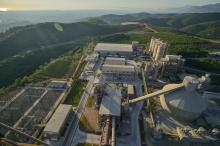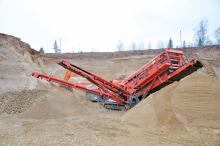The Greek cement industry has been directly hit by the country's debt crisis, reflected by
Titan Cement saw the first improvements in its operating results in seven years and a profit in 2014, while other cement producers
However, Lafarge said that it was building exports and Titan Cement also noted that it benefited from exports in the first quarter of 2015.
With the US dollar strengthening versus the Euro, more such export development may be expected.
A 14 million tonnes/year cement production capacity for 11 million people indicates over-capacity by European standards. Greek's financial woes are expected to continue as it comes closer to departing from the Euro and Eurozone, making it likely that exports will offer a lifeline to local cement companies as the local construction market remains subdued. However, the main cement manufacturers will have some flexibility in their strategies since they are part of larger multi-national outfits.






